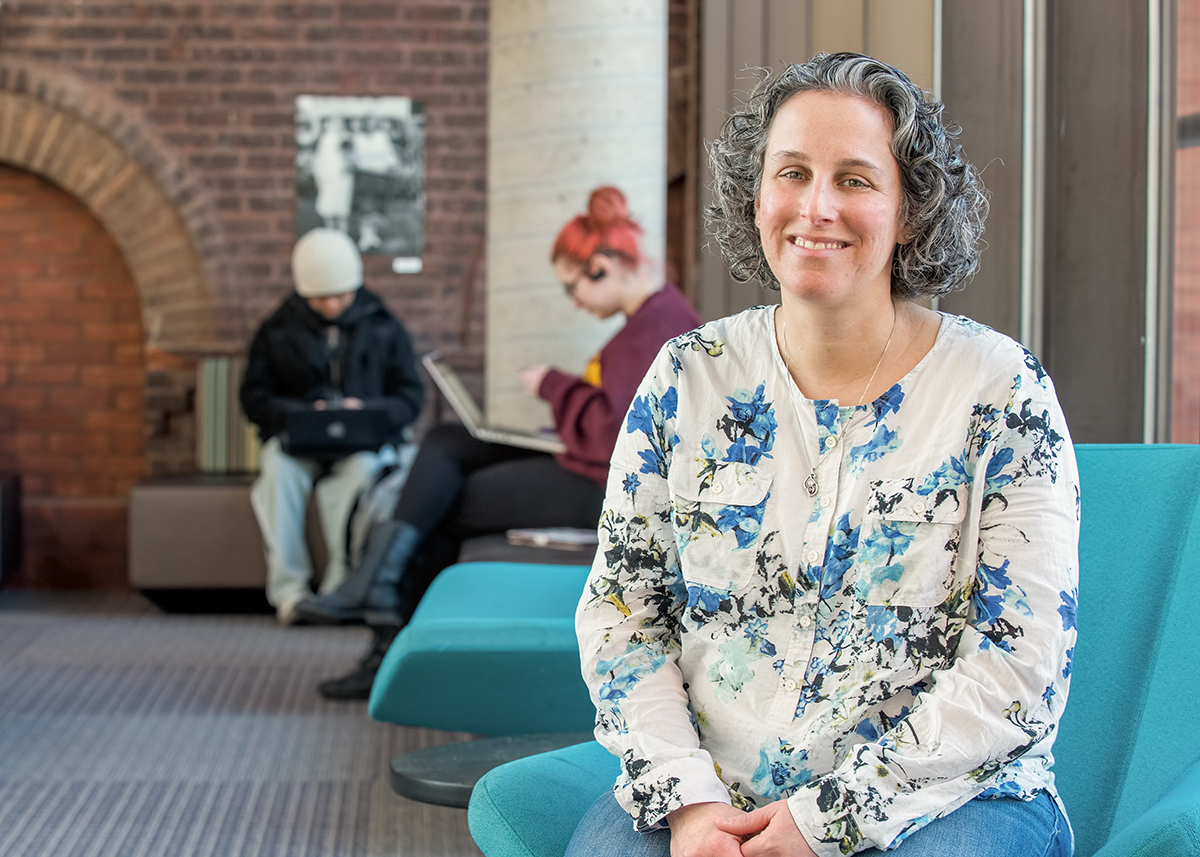A lightbulb moment in London illuminated Jodi Dworkin’s career path toward parent–child relationships.
Today Dworkin is a professor and associate head of the Department of Family Social Science. Back then, she was a student from Allegheny College with an undergraduate research opportunity. In London she assisted a psychiatrist surveying teenagers and their parents for Britain’s health service.
Their results unveiled an interesting disconnect. Parents reported that their teens should be concerned about alcohol and smoking, while the teens were more concerned about making friends and fitting in.
It’s what family social scientists call divergent realities, which lead to misunderstandings in the parent–child relationship. It made Dworkin curious.
“London was where I first started forming questions about the relationship between adolescents and their parents,” she says.
Her questions grew into a research agenda in graduate school. She delved deeper into risk-taking—developmental behaviors around experimentation and learning.
“Risk-taking is all the things that young people do to try new things. Like trying out for the debate team, or joining a new group—moving out of their comfort zone and developing new skills.”
Then Dworkin got her first experience working with extension, discovering how research could be applied in useful ways for parents and families. After graduation, her commitment to practical research drew her to Minnesota in 2002.
Marjorie Savage, then director of the University’s pioneering Parent Program, noticed Dworkin’s research and soon came calling. The two shared a vision of giving college students’ parents the tools and resources to guide rather than rule.
Savage and Dworkin’s collaboration produced a series of online resources and seminars for parents on college finance and alcohol use, still available today. Though Savage retired in 2012, the partnership continues. Their latest collaboration is a website for parents and families of college students.
Technology and family dynamics
Promoting positive communications and helping parents develop their skills has been the core of Dworkin’s research agenda. Now she incorporates technology’s impact on risk-taking behaviors and family relationships into her work.
“One of the things we’ve learned about technology—smart phones, tablets, and computers as well as apps—is that it’s flipped the power dynamic within families,” says Dworkin. Young adults are more expert technology users than their parents.
“Relationships and behaviors online are different,” she says. “Young adults are sharing more information, and it’s more complicated. Technology often moves faster than research, so we’re learning to ask questions in a way that anticipates change.”
Dworkin, who has two children of her own, empathizes with parents who grapple with the allure smart devices wield on children and young adults. She knows parents throw up their hands, exclaiming, “What can I do?”
“I want to empower parents and let them know that it’s okay to establish guidelines.”
Her research shows that young adults still put a high priority on communicating in person with their parents.
“If they’re just checking in, young adults may just text,” she adds. “But if it’s something important, they will call. They want to hear the parent’s voice.”
And that, she says, is a positive outcome that should light up any parent’s heart.
Learn more about the Department of Family Social Science.
Story by Julie Michener | Photo by Jayme Halbritter | Spring/Summer 2018
 Jodi Dworkin
Jodi Dworkin